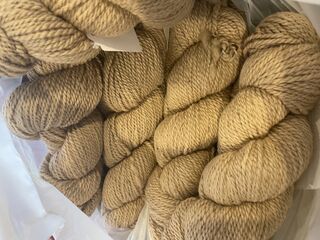Alpaca Tool Box
Important Resources and Information for Alpaca Owners
- Essential Barn Items to get started
- Hay feeders
- Hay—Free Choice. We use Orchard Grass Hay. Tractor Supply sells compressed bales of Orchard Grass with a little alfalfa that would work fine.
- Feed dishes or trough
- Feed—we use Glengary Feed or Mazuri Performance. The amount depends on the life stage of the alpaca. Nursing moms and cria need about 1# per day. Maintenance alpacas need about ½ # per day. The Glengary/Mazuri feed provides most of the vitamins and mineral specific to alpacas. Other feeds are not adequate.
- Clean, reliable water source.
- Electrolytes during hot weather. We use Aquazyme Plus from Mike Carbajal on his Aquazyme facebook page.
- Fans for temps > 80-85
- Shelter from sun and rain. If you have new cria, you will need shelter and cria coats and ways to keep them warm in the winter.
- Essential Meds to have on Hand:
- Banamine (Pain, fever, swelling)
- CDT
- B vitamins (injectable)
- Probiotics
- Safeguard
- Ivermectin (injectable)
- Vit A & D, when you start having cria
- Eprinex
- Terramycin
- Find a veterinarian who has skill and interest in alpacas/llamas
A&M is a good resource. We use Blanco Vet clinic. They have years of experience with llamas and alpacas. You will need a good vet.
- Fencing and Pastures
With only females, you will be able to have a couple of pastures. IT is important to be able to rotate pastures to help with parasite control.
- The fencing should be 2X4 no climb fencing, 4 ft high.
- Gates are the key to flexibility.
- Arrange to have an area as a catch pen—about 10 X 10. It is a great area to feed, catch them up for haltering, herd health etc. It is easier to have a way to funnel them in through and alley or a narrowing pasture.
- Grass— summer grass: Coastal Burmuda, Tiffany Teff, Chicory, Bahia, Lezpedopa
---Winter grass: Jumbo Rye, Oats, wheat
- Fleece—Genetics of course are key, but if you don’t have proper nutrition and pasture management, the fleeces will be useless. Clear your pastures of stickers and brambles. Grow grass.
- Not all alpaca fleece is the same. There are different grades. Grade 1-3 fleeces will make beautiful yarn for scarves, hats, sweater, etc. Grade 4 fleece is still usable, but will be best for felting or rugs.
- Your fleece is a reflection of genetics, pasture, environment, and nutrition. Invest in all of those and you will have a herd of whatever size that excels.
- Resources:
- Alpaca Owners Association. Get a membership and a breeder ID. They are a wonderful resource of education and support. Volunteer, if you can, for a committee. Your opinion matters and you can benefit the entire industry.
- Light Livestock, Valley Vet, Quality Llama products are all great resources for medicine and supplies.
- Norm Evans Field Manual is a priceless resource of advice and medical information. Your vet will even appreciate a copy.
- There is a resource called the Camelid Medicine Cabinet. It is a Bible of drug doses for alpacas.
- Common Problems Alpacas May Experience
- Heat Stress. You can avoid this with shearing before it gets terribly hot. Shearing in early April is essential in Texas.
- Fans, plenty of cool water, wetting bellies (not the entire body) when it is hot, Shade, avoiding stress when it is hot.
- There are internal parasites and external parasites. Obviously, you don’t want to treat indiscriminately but if an animal is getting pale (check inner eyelid) and thin, they have something going on. Regularly have the vet check fecals and treat with the correct drug and dose for weight. Fleas, ticks, flies, and mites are the external parasites. Injectable ivermectin will help with these in combination with frontline spray to the ears and bare areas in the front of the legs. We also use a topical called Eprinex to keep the insect pests away.
- Learn to check for anemia by looking at the inside of the eyelid.
- Heat Stress. You can avoid this with shearing before it gets terribly hot. Shearing in early April is essential in Texas.
If they are anemic, the vet needs to assess and they may need treating for worms or a red blood cell parasite they can get called mycoplasma hemolama.
FAMACHA Scoring (online course: web.uri.edu) d
Saturday, August 24, 2024





